
Youngstown Sheet & Tube: The First Concrete Pre-Fab Estate in the World
The story of this village will be shared within my upcoming book Forgotten Dreams, among many other important parts of our history that I have photographed and documented.
Youngstown Iron Sheet and Tube Company was a former American steel manufacturer created on November 23, 1900.
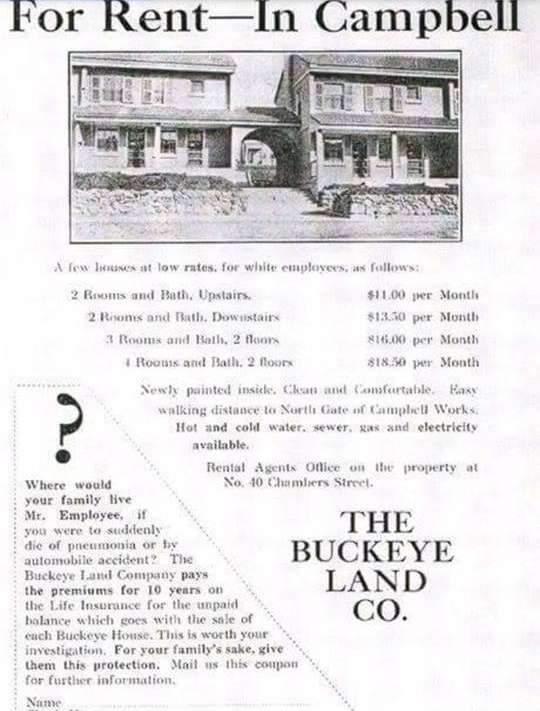
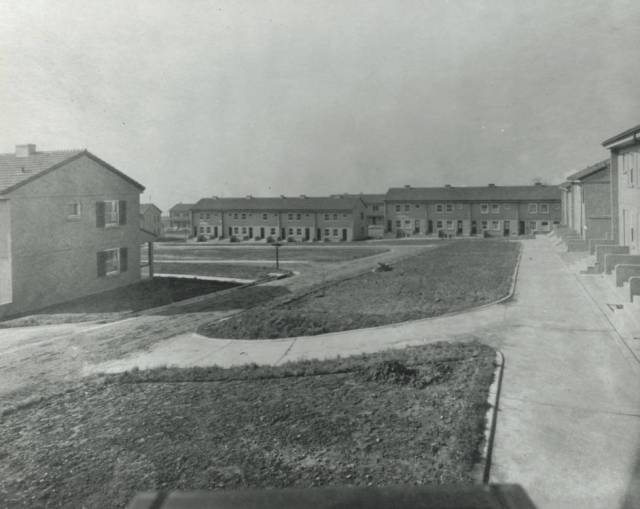
In 1888, local investors George D. Wick and James A. Campbell organized resources, and started the Mahoning Valley Iron Company. Only a short five years after its creation, the firm was taken over by the Republic Iron and Steel Company. Thus, the Youngstown Iron Sheet and Tube Company was born. The company was created on $600,000 of capital, which in today’s numbers does not seem like much to start such a huge company, but at that time was a very large chunk of cash. Wick would emerge as the company’s first president in 1900, and had appointed Campbell as secretary.




A name change came about in 1905, when the word “Iron” was dropped entirely from the name, leaving it as we know it today – Youngstown Sheet and Tube. In early years, the company would deal primarily with sheet and tube, but expanded in later years, eventually becoming one of the nation’s staple steel producers, offering a very diverse product line. Not steel staples. When I say staple, I mean they were important. In fact, they were one of the nation’s MOST important steel companies.




In 1918, the company was on a steady rise to the top, and began construction of worker homes in Youngstown/Campbell, Ohio. The homes were built between 1918-1920, and became historically important as the first pre-fab concrete estate in the world.




By 1923, Youngstown Sheet and Tube had purchased assets of numerous companies, including the Brier Hill Steel Company, and facilities in East Chicago and Indiana Harbor, Indiana. Owning these assets brought Sheet and Tube right up to being the fifth largest steel maker in the United States, and largest employer in the Mahoning Valley.




By 1955, the company had grown larger than companies such as Coca-Cola, Heinz, Johnson & Johnson, Anheuser-Busch, and Marathon Oil bringing in a revenue of over $600 million, and employing over 30,000 people. This same year, the first Fortune 500 list was compiled, and Sheet and Tube ranked at number 70, right behind Dow Chemical.
The main plants, known as the Campbell Works, were located in Campbell and Struthers, Ohio. This company housing was home to many workers of these plants.
I’m going to be very cliché here, and say that we must remember all good things must come to an end. Youngstown Sheet and Tube abruptly ended operations at the Campbell Works location on September 19, 1977, leaving 5,000 workers out of jobs; a day remembered as “Black Monday.” Following its closure, more steel mills across Youngstown would continue to shut down, with the next big operation being the Brier Hill Works, closing in 1979. With these workers out of jobs, company homes were quickly abandoned, followed by natural decay and vandalism while empty over the years. In 1982, the homes were declared a National Historic Site, and more recently in 2011, were put on the endangered list.

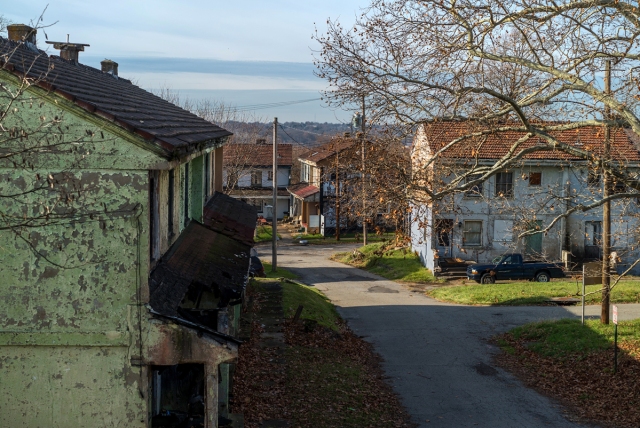
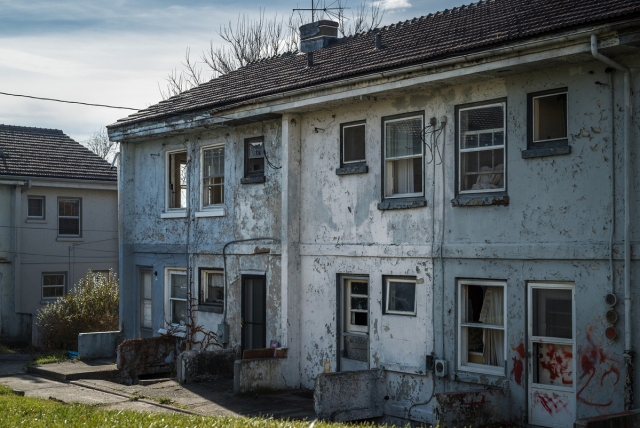
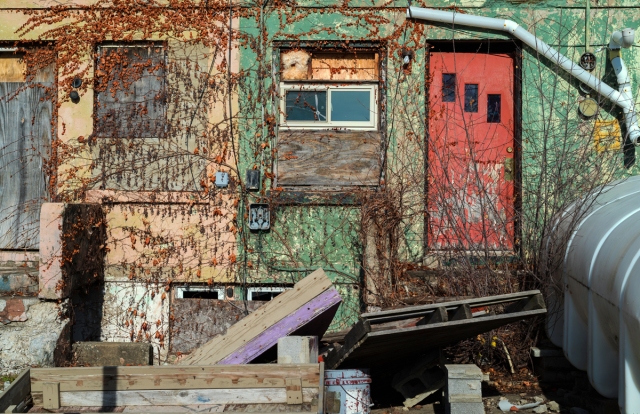
Currently, the non-profit group Iron Soup Historical Preservation company owns, and hopes to restore the homes to their former beauty, and share their story with generations to come. Though some structures have been set on fire, and others remain littered with decay and vandalism, the concrete structures hold strong. The village is currently open for tours, as restoration is underway. If you would like to visit, see the info below:
Address:
40 Chambers St
Campbell, Ohio
Contact:
(330) 942-8215
info@ironsoup.com
Very often, I’m asked what gear I use for my photography, videography, etc. Questions ranging from what type of camera/cameras I use, what lenses I use, backpacks, memory cards, even what type of laptop I recommend, or what type of introductory camera I recommend…all that stuff, and more!
Well, of course I love to recommend camera gear or adventure gear that I trust and love, so at the end of each post I create here on my blog, I like to give a bit of a run-down on gear I use almost all the time!
So here it is! My entire (or most of it) list of photography/editing/adventure gear that I use.
My Camera (Sony a7riii) – https://amzn.to/2AFtzQv
Alternative Camera – https://amzn.to/2VHjR9h
Theta 360 Camera – https://amzn.to/2CaRwzm
Sandisk Memory Cards – https://amzn.to/2SN5sX6
Sony 16-35 4.0 – https://amzn.to/2HgLFhN
Zeiss 55 1.8 – https://amzn.to/2SK4Dys
Zeiss 85 1.8 Batis – https://amzn.to/2SNRQLm
Laowa 12mm 2.8 Zero-D – https://amzn.to/2AESLXD
My Favorite Backpack – https://amzn.to/2RKTi44
Tripod 1 – https://amzn.to/2SKxxON
Tripod 2 – https://amzn.to/2M2gUM6
MSI Laptop (great for editing, & much more) – https://amzn.to/2shGfZn
My e-books – https://amzn.to/2Bumcwo
Hardcover books and prints available at – www.oddworldstudio.com
Yes, those links above are all affiliate links to Amazon, so yes I do get a very small percentage if you make a purchase through one of them. This helps me keep this blog up and running!






Fascinating! Thank you for both the history lesson and the wonderful photos — plus the info on how to visit. Great post, Johnny.
I TOTALLY AGREE!!!